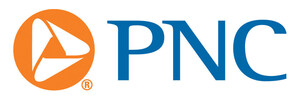
PNC Bank Provides Education Financing Tips For Students
- Financial aid process offers valuable lessons for students -
PITTSBURGH, July 22, 2013 /PRNewswire/ -- With more than 21 million students enrolled in a college this fall, a large majority will need to take a break from their summer jobs to find additional financing for higher education.
"With more than 60 percent of students estimated to be relying on outside funds to pay some portion of their education financing needs this year, the borrowing decisions students make are crucial to their financial success down the road," said Thomas Lustig, president of PNC Education Lending, which provides new and continuing education loans. "Proper planning and research during the financial aid process can help students select the right financial products and establish a solid credit history."
Listed below, are tips to help set young adults on the right track for financial success:
- Determine your financial needs: Students should calculate what they believe their costs of living will be while in school. They should determine costs associated with in-state or out-of-state tuition, living on or off campus and estimated costs of books, fees, travel and supplies for the entire year.
- Become educated on available financial aid: Find out what types of federal loans, scholarships, grants or other types of aid are available. In some instances, students may be eligible for money that does not need to be paid back (grants). Current news and information on available aid and how to qualify can be found by visiting www.studentaid.ed.gov.
- Borrow only what you need: Ultimately, a student or parent will be responsible for paying back education loans after graduation. The primary goal should be to earn the degree you want while owing the least amount of money at graduation. The amount you borrow has a larger impact on your repayment burden than the interest rate, so reducing the amount you borrow is a key strategy. With less money to pay back, the borrower may be closer than they expected to big purchases after graduation, including a car or saving for a down payment for a home. Make sure you compare the costs of all four years or more in college to the expected income you may earn with your first job after graduation.
- Pay what you can, if you can: Keep the amount of accruing interest low. It is a good idea to pay at least the accruing interest or more while you are in school. Ten dollars, $20, $30, or more - there is no right or wrong amount.
By following these steps, students and graduates should be on their way to financial success. For more information and educational tools on student lending, visit www.pnconcampus.com.
PNC Bank, National Association, is a member of The PNC Financial Services Group, Inc. (NYSE: PNC). PNC (www.pnc.com) is one of the nation's largest diversified financial services organizations providing retail and business banking; residential mortgage banking; specialized services for corporations and government entities, including corporate banking, real estate finance and asset-based lending; wealth management and asset management.
CONTACT:
Timothy Stokes
(412) 762-0278
[email protected]
SOURCE PNC Bank





Share this article